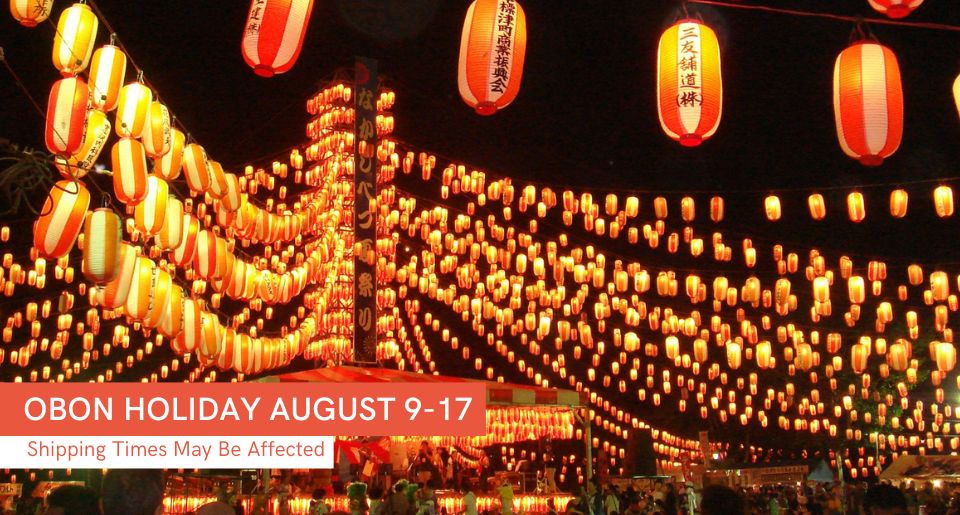Obon holiday in Japan August 13-16, 2023, may delay international shipments from ZenPlus and affect customer support.
We apprecieate your patience and understanding.
Thank you!
Table of Contents
- Introduction
- Japanese Holidays and Their Significance
Understanding Japanese Holidays
Major Japanese Holidays
Golden Week
Obon Festival
New Year's Celebrations - Impact on International Shipping
The Influence of Japanese Holidays on Shipping
Reduced Workforce and Production
Congestion at Ports and Airports
Delays in Customs Clearance
Customer Service and Logistics Challenges
Introduction
The Japanese are famous for not taking many holidays from work, but there are a few traditional and modern holidays that hold immense significance. And while the shipping and delivery companies work like well oiled machines here, these celebrations can have a notable impact on international shipping.
Japanese Holidays and Their Significance
Understanding Japanese Holidays
Japan follows a unique holiday calendar, combining ancient traditions with modern observances. The Japanese cherish their culture, and these holidays are deeply rooted in their history and beliefs. Understanding these celebrations is crucial to comprehend their impact on various sectors, including international shipping.
Major Japanese Holidays
Golden Week
Golden Week is one of the most extended holiday periods in Japan, comprising several national holidays like Showa Day, Constitution Memorial Day, Greenery Day, and Children's Day. The week-long break usually falls between late April and early May, with many Japanese taking time off to travel, spend time with family, or participate in local festivities.
Obon Festival
Obon is a traditional Buddhist event where people pay respects to their ancestors' spirits. This festival, held in mid-August, involves various ceremonies, dance performances, and visits to ancestral graves. During Obon, many businesses and factories suspend operations, leading to a slowdown in the supply chain and shipping activities.
New Year's Celebrations
The New Year's celebrations in Japan are essential cultural events that signify fresh beginnings. From January 1st to around January 3rd, businesses, schools, and government offices remain closed, contributing to disruptions in international shipping during this period.
Impact on International Shipping
The Influence of Japanese Holidays on International Shipping
Japanese holidays can significantly impact international shipping and logistics operations due to various reasons, ranging from reduced workforce and production to congestions at ports and airports.
Reduced Workforce and Production
During major holidays like Golden Week and New Year's celebrations, many employees take time off, leading to reduced workforce availability in factories, warehouses, and shipping companies. This labor shortage can lead to delays in order processing, packaging, and dispatching.
Congestion at Ports and Airports
As people engage in domestic and international travel during holidays, transportation hubs, such as ports and airports, experience heightened congestion. This congestion can cause delays in loading and unloading cargo, which affects the overall supply chain.
Delays in Customs Clearance
Japanese customs authorities also observe holidays, which can cause delays in customs clearance procedures for imported and exported goods. This could lead to shipments being held up at borders, further prolonging delivery times.
Customer Service and Logistics Challenges
Many Japanese businesses shut down entirely or operate with reduced staff during holidays, resulting in limited customer service support. Consequently, addressing shipping inquiries or resolving logistics issues may take longer than usual.





